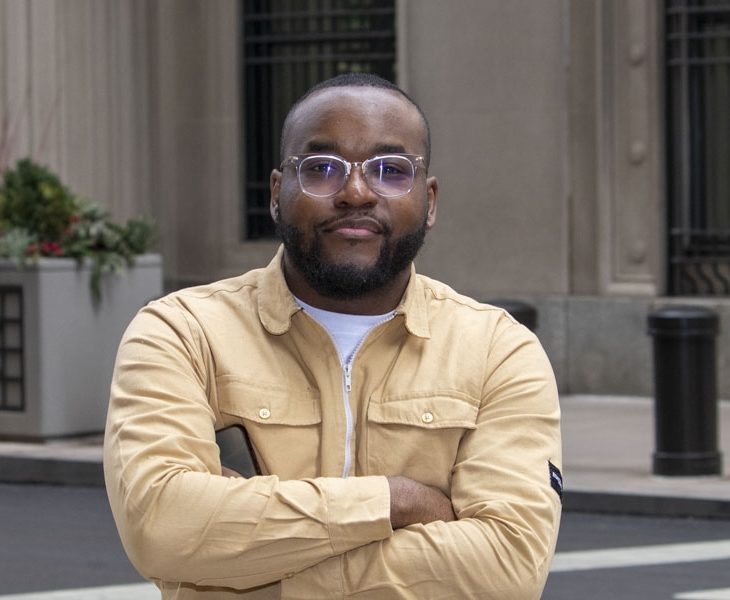The Good Samaritan and a Better New Normal
April 17, 2020

I waited until the last minute to write this piece. Initially, I understood this reluctance to be the result of anxious feelings concerning our collective present and future reality- an existential crisis of sorts. And to be clear, this moment is unique in its troubles and calamities, so interrogating our ontological reality is a natural response. People are losing their livelihoods, are unable to be with their loved ones dying from Covid-19, and domestic violence victims are susceptible to abuse now more than ever. Even for those with job security, this pandemic and global health crisis is presenting the occasion for severe anxiety and depression episodes, food and substance abuse, and blurred lines between social distancing and social isolation.
Yet, I cannot claim any of the above as the motivation for my procrastination. After much reflection, it occurred to me that this pandemic- and its social consequences- are forcing me to see myself. Flaws and all. And it is tough to face yourself in a culture that socializes you to always see the “other” as the problem in need of solving and the issue in need of fixing. It is also difficult to write an article titled “A Better New Normal” once you realize your actions (and inactions) are part and parcel of the problems killing lives (human and animal) and human spirits.
But this demoralizing circumstance presents an opportunity for changed behavior, which can lead to a new normal. Let me share a popular and powerful story that helps me illustrate this point. The gospel of Luke in the bible records Jesus narrating a story of a man who was stripped of his clothing, beaten, and left for dead on the side of the road, a story we now call “the parable of the good Samaritan” (Luke 10: 25-37). Those whom Jesus’ first-century audience would expect to assist the man in his crisis- a priest and a Levite- both avoid him and offer no assistance. However, an unlikely character- a Samaritan, whom Jews despised and had no place in the desired social order- went out of his way to care for the man. This is a powerful story, but more power lies in the context. (Indulge the biblical scholar in me for a moment, please.) Jesus is telling this story in response to a question that is asked of him by a man trained in the law who wanted to know what he must do to inherit eternal life. The narrative continues in such fashion:
‘He answered, “Love the Lord your God with all your heart and with all your soul and with all your strength and with all your mind’[c]; and, ‘Love your neighbor as yourself.[d]”
28 “You have answered correctly,” Jesus replied. “Do this and you will live.”
29 But he wanted to justify himself, so he asked Jesus, “And who is my neighbor?”’
This is the point in the biblical narrative when Jesus tells the parable. By naming the Samaritan as the lawyer’s (and thus Jewish people in general) neighbor, Jesus establishes a new social order and provides the blueprint for Jewish behavior moving forward. The crisis led to a new normal, a better new normal.
What does this better new normal look like? I can go on and on naming the features of a better new normal I hope we create after this crisis; universal healthcare for all, free public education from pre-K to college and an expansion of effective online learning, a fundamental change in the way we balance work, recreation and rest, the valuing of human life over property and profit, and the eradication of prisons (human beings in prisons are much more susceptible to the coronavirus, and prisons are not an effective solution to society’s problems). Yet, a better new normal cannot just be about a change in policy and praxis. What we need is a change in orientation. A better new normal requires a fundamental change in the way we posture ourselves toward one another, and to creation in general.
To be clear, this is a prime opportunity for a new normal. But, creating and organizing this new normal does not guarantee that it will be better for individuals or societies if the following two features are not normalized in human behavior:
“We are always looking at and thinking about the day after the day after.” IFYC president, Eboo Patel, said this during a recent IFYC staff meeting. This struck me. What Eboo meant was that IFYC is concerned about what society looks like after the crisis has passed and we are negotiating social order and behavior. That reminded me of a passage from author Rebecca Solnit’s recent opinion piece in the New York Times:
“No one knows yet what will come out of this crisis. But like so many other disasters, this one has revealed how interconnected we are; how much we depend on the labor and good will of others; how deeply enmeshed we are in social, ecological and economic systems; and how prevention or survival of something as deeply, bodily personal as a disease depends on our collective decisions and those of our leadership.”
My hopes are not only future focused; I hope to see changes in our posture now (people continue to hoard necessary supplies, and some of us are not practicing the social distancing required to curtail the spread of the disease). Then we will begin to understand- like the Good Samaritan- that what affects one affects the whole. And when it is all said and done, our reflection reveals that a better new normal is only possible when we all invest our time, talents, and treasure in building it.
Share
Related Articles
American Civic Life
Higher Education
American Civic Life
Is This a Time for Bridgebuilding? 5 Leaders in Conversation



